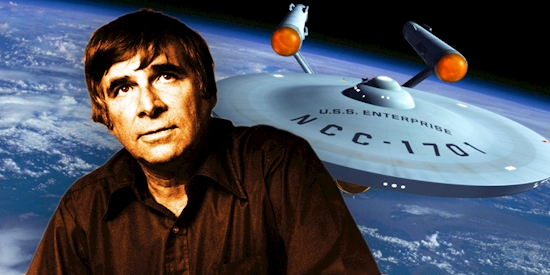Star Trek's Creator Had One Rule - Here's The Series That Broke It
After Star Trek: The Original Series was canceled after its third season in 1969, Roddenberry became a staple of the convention circuit, where he transformed from a television production grunt into a revered visionary. As the adulation around him grew, Roddenberry started becoming more philosophical about Star Trek's ambitions, retroactively applying strict thematic standards to the franchise that were never actually present in TOS. These rules were hinted at in Star Trek: The Motion Picture (the one Star Trek film where Roddenberry wielded creative control) and formed the foundation of Star Trek: The Next Generation. Roddenberry believed that, by the 24th century, humanity would have shaken off essentially all the troubles of the 20th century; that extended beyond just the erasure of poverty and war on Earth to the idea that conflict of any sort between humans - and especially Starfleet officers - was completely snuffed out. Humanity was to have achieved utopia, and Starfleet was to be the best and brightest of that future paradise.
Click the button below to start this article in quick view. Start nowThis caused severe headaches for the writing staff of TNG, but by the show's third season they had largely figured out how to make it work; outside forces could cause conflict, and while amorality within Starfleet itself was still more or less outlawed, incompetence within the organization ran rampant. But Captain Jean-Luc Picard's USS Enterprise was still populated by people who were either objectively perfect or perfection adjacent.
Roddenberry died a little over a year before Deep Space Nine premiered in 1993; had he lived a bit longer, DS9 might have killed him. The show featured a deeply flawed lead in Avery Brooks' fiery Benjamin Sisko, and revolved largely around the fallout from the Cardassian occupation of Bajor, which made overt allusions to the Nazis' monstrous treatment of the Jewish people during World War II. The show explored religion and spirituality in a way that would have irked the famously atheist Roddenberry.
But all of those would have been mild annoyances compared to Deep Space Nine's most controversial theme - Starfleet's loss of innocence. DS9 was the first Star Trek show to take place during a war - against the massive Dominion, a sort of dark mirror of the Federation - and it showed the Federation's high minded ideals pushed to their limits in an effort to simply survive. There are two instances where the show most egregiously violated Roddenberry's golden rule - and they also happen to be series highlights.
In the sixth season episode "Inquisition," Deep Space Nine introduced Section 31, the shadowy black ops Starfleet cabal that take on the morally indefensible tasks Starfleet can't pursue in the light of day. Section 31 attempted to wipe out the Founders, the shapeshifting species that leads the Dominion, with a virus that would have killed the entire race. Any arm of Starfleet condoning genocide was unthinkable in Roddenberry's time. Section 31 has played important roles in Star Trek Into Darkness and the second season of Star Trek: Discovery, each instance just as controversial among fans as when they debuted on DS9.
Perhaps DS9's most revered episode is "In The Pale Moonlight," where Captain Sisko must do whatever he can to bring in the Romulans as allies against the Dominion. Enlisting the aid of former Cardassian intelligence operative Garak, Sisko compromises every ideal he's ever believed in, resulting in the murder of a Romulan ambassador, a much needed new ally in the war, and the decimation of Sisko's self-respect. He lied, cheated, and was even an accomplice to murder, but as he repeats to himself at episode's end, "I can live with it."
Over two decades later, "In The Pale Moonlight" is still one of the most shocking episodes in all of Star Trek. Not only was it a defining moment for Deep Space Nine, it was the moment where Star Trek officially outgrew its creator to become something new, which is how the franchise has managed to survive for over 50 years. The essence of Roddenberry's creation always remains, even when the odd detail changes or the occasional rule gets broken.
Source: screenrant.com

